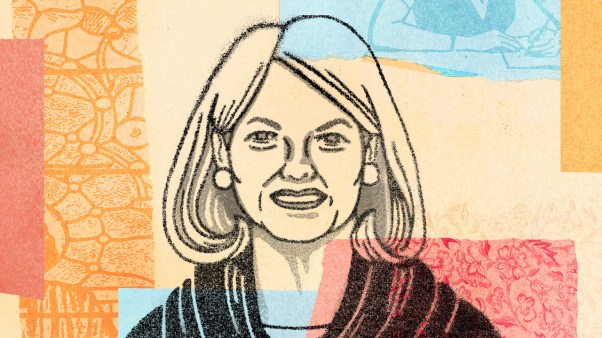As far as anyone knows, Carmel Jones started the only financial institution in the history of Great Britain that began with a religious vision. But if Pentecostals aren’t supposed to start credit unions based on dreams about Jesus speaking to them on a church roof, no one ever told him.
“I had no one to guide me but God,” Jones said.
Jones, a Church of God in Christ minister who founded the Pentecostal Credit Union (PCU) in 1979, died on July 22 at the age of 85. He started the credit union so that Black pastors would have access to capital to buy churches. Today, it is the second largest in Great Britain, with about 2,000 members and nearly nine million pounds in deposits (the equivalent of about $11 million in the US).
The PCU has financed the purchase of dozens of church buildings, providing homes for some of the most prominent Black Pentecostal congregations in the UK, including the Assemblies of the First Born Church, the New Testament Assembly, New Testament Church of God, and Rauch City Church.
“He was the church’s Black banker!” said John and Penny Francis, co-leaders of Rauch City, in an interview with Premier Christianity. Their multisite London church “started with Reverend Carmel Jones, who gave us our first mortgage when our high street bank turned us down.”
Delroy Powell, bishop of the New Testament Assembly, recalled Jones as a “disruptive visionary,” who was far ahead of his time, figuring out how to use the financial system to benefit Black Christians.
Jones was born in Jamaica in 1936 in the Bye-berry district of St. Elizabeth Parish. He was the fifth of six children born to Roslyn Samms and Arthur Jones, a small farmer.
His mother raised him in the Anglican Church, Jones recounted in his self-published autobiography, where he served as an acolyte. His father put him to work, and when Jones was 17, gave him a choice of going to the United States or England. He chose England, and sailed to London in August 1955.
The 17-year-old Jones immediately went to work in the UK, starting as a checker with the railroad. He earned a little more than six pounds per week (the equivalent of about $250 today). He scraped by and also sent his mother about 40 percent of his income every month. He repaid the money his father had spent sending him to England, too, learning important lessons about loans and how much a little access to capital could be life-changing.
Adjusting to British life was not always easy for Jones. One Sunday after he first arrived, he went to an Anglican church near where he lived. As the service began, he noticed the other parishioners did not seem to be paying attention to the prayers and Scripture reading.
“I saw them looking straight at me,” he later wrote. “I couldn’t understand it until the vicar came up to me. He said, ‘Sir, thank you very much for coming. But my congregation is a bit uncomfortable with a Black person in their midst.’”
Jones didn’t know it, but the church was associated with the famous “Clapham sect” of Anglican evangelicals, which inspired men such as William Wilberforce to advocate for social reform, including the abolition of slavery. Two centuries later, when a change in immigration policies brought a lot of citizens of former colonies to live and work in Great Britain, Christians in Clapham did not want to worship next to Black people. (The church apologized in 2020.)
Jones left and, after that, stayed away from white Christians. For a while, he wouldn’t have anything to do with church. He got a new job at Decca Record Company, working in the music publisher’s factory, starting as a pipe fitter’s assistant and working his way up to assistant foreman.
He met a young woman named Iveline who had arrived from Jamaica a year after he did. He immediately fell in love with her and told a friend, “There goes my wife.” One year and eight months later, he married her.
Jones went to church with Ive but did not consider himself a Christian or interested in Christian things until an encounter with an evangelist in 1959. Standing at a crossroads under an elm tree, as Jones later recalled, the evangelist started up a conversation with Jones about his wife. Wasn’t she beautiful? Wasn’t she wonderful? Didn’t he think she was a gift from God?
God was good! Jones should worship him, the evangelist said.
That night Jones had a dream he was back in Jamaica outside the Anglican church he grew up in. Jesus was holding out a hand and pointing into the church.
When he woke up, Ive was sitting by the side of the bed. Jones hugged her and told her he was now a sinner saved by grace. He joined the Church of God in Christ, his wife’s Black Pentecostal church.
As a born-again Christian, Jones continued to be led by dreams. Once, he apologized to his wife after he dreamed that Jesus told him he hurt her. Another time, he made an important decision after he dreamed he discussed it with an angel.
The most impactful dream, though, was the one where Jesus met him on a roof.
The whole thing started with an article in The Sun, titled “Who can start a Credit Union?” The idea struck a chord with Jones. It reminded him of a historic practice in Jamaica called “pardner,” where people pooled their money and loaned it to each other. Elsewhere in the Caribbean, African diaspora communities call it “esusu,” “susu,” and “box hand,” a kind of cooperative savings and loan system.
Jones saw that something like that would really benefit Black Pentecostals in Great Britain. Few of the churches had their own buildings, despite growing, thriving, and multiplying. The pastors would apply for loans at the banks, and they would always get turned down. They often had to rent social halls, cleaning up the messes left by Saturday night dances.
“Boy oh boy,” Jones recalled, “beer cans and bottles and, even worse, people being sick all over the place. Then said I, ‘Lord, Your people deserve better than this. Help me to help ourselves.’”
A credit union could be the answer to that prayer. He sent off for the rule book and got it in the mail. Then he read it for six weeks, carrying the book with him everywhere. Every Saturday night, after ferrying people home from various church services and fellowship events in a commonly-shared Pentecostal minibus, Jones would go to the building where his church was meeting, let himself in, and pray until about 2:30 a.m.
He did that every week for six weeks.
“Lord,” he said, “you know how your people are touchy when it comes to money. … Speak to me, reassure me, and let me hear loud and clear that I have your permission and blessing to go ahead.”
After the sixth week, he went home at 2:30, went to bed, and had a vision of Jesus. He was standing, majestically robed, on the roof of the church. Jones was up there with him, with the credit union rule book in his left hand.
“Then he said unto me,” Jones recalled, “‘What is that in your hand?’ I said, ‘The rules, sir.’ He said to me, ‘Go your way and do what is laid on your heart, and I will be with you.’”
Jones started the credit union in October 1979. Twenty-one people met in the Jones home, signing up as members, each contributing one pound and twenty pence.
Not everyone loved the idea, though. Some preferred older ways of pooling money, without any debt. Others said Black people couldn’t be trusted to repay their loans and the credit union would bring disgrace on the Pentecostal community.
“When it fails, as it surely will, it will bring the entire Pentecostal Church organisation into disrepute,” one Black minister told Jones.
“Are you saying that I am going to fail?”
“Yes,” the minister said, “because Black people always fail, especially where money is involved.”
Jones didn’t believe that, though. He didn’t accept it. The following year, at age 44, he left Decca Record and went to work full-time as a banker for Black church people.
By the end of the decade, the Pentecostal Credit Union had moved out of the Jones’ house and into a three-story building. And it continued to grow. Soon Jones was also asked to help the development arm of the Credit Union League of Great Britain (now known as the Association of British Credit Unions), work with researchers at numerous universities studying how to provide more access to capital in underserved communities, and advise the World Council of Credit Unions. In 1991, he was honored by the Queen with a Member of the Order of the British Empire award.
“We based our trust in our Christian brothers and sisters that they would repay back the monies without any fuss or bother,” Jones . “Trust was the driving order of the deal.”
By 2009, the credit union had 740 members and not a single record of default. Then the PCU ran into trouble when one church decided it was going to discontinue payments until it could renegotiate the terms.
“Satan, that wicked one, refused to pay any more of the loan,” Jones said.
In the midst of the dispute, someone reported to the Financial Services Authority (FSA) that Jones had been working around rules put into place in the early 2000s. The FSA decided credit unions could only make loans to individuals, not organizations like churches. The PCU, however, had decided to make a loan to a church but record it, on the books, as a loan to individuals at that church. An investigation later found at least one of those individuals didn’t know they had a loan in their name.
The FSA reprimanded Jones sharply and censured the credit union, calling the unlawful loan “disgraceful.”
Jones, for his part, acknowledged what he had done and took responsibility. He said he was frustrated with the regulation that wouldn’t allow him to help churches, which was the whole point of the credit union in the first place. So he came up with what he called a “creative loan.”
“I knew what I was doing was wrong,” he later wrote, “but my peace of mind was that I did not defraud the credit union of one penny, or any one of the whistle blowers.”
Prominent members of the credit union said that even though the church had stopped paying back the “creative loan,” they didn’t hold anything against Jones. They didn’t really think he’d done anything wrong.
“I am sorry that the creative ways by which Reverend Jones was able to assist us and others has landed him in trouble with the Financial Services Authority,” said John Francis of Rauch City Church. “Reverend Jones is a good man.”
Jones resigned in 2012 at age 76, and the FSA decided not to fine him.
In 2020, the credit union that he founded celebrated its 40th anniversary. The new leadership at the PCU praised him for his foresight and innovation. Many leaders in the Black Pentecostal community joined in celebrating his legacy.
“Jones’ deep insight in marrying the black majority Pentecostal church with the concept of credit unions has provided a powerful and positive influence,” PCU chair Leslie Laniyan wrote. “He harnessed and built upon the belief that the route to inclusion for black communities in this country was an economic one.”
Jones is survived by his wife, Ive, and their two daughters, Elaine and Lorna. He is predeceased by a son named Lionel. A funeral will be held at Rauch City Church in London on August 15.









